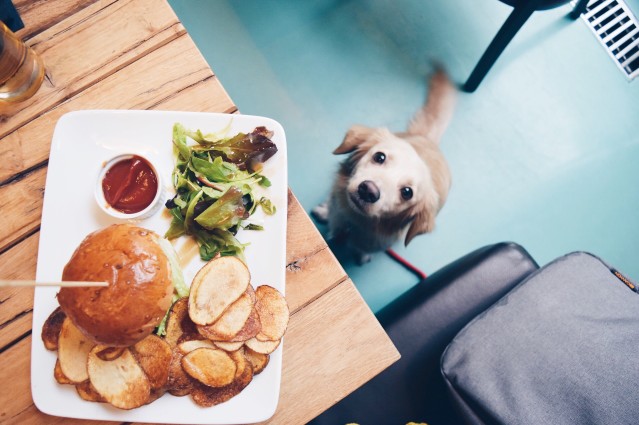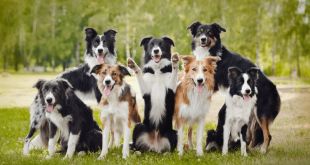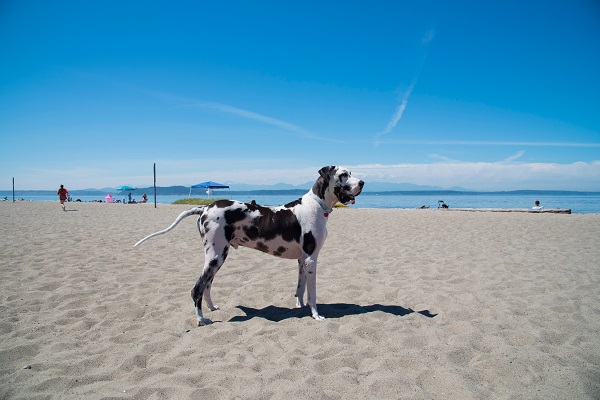You love your pets, and the best way to show affection is to spoil them a little. One of the best gestures is treating your fur friends with their favorite food. However, good behavior gets appreciation. On the contrary, any extreme action by your dog needs immediate attention.
Dogs have a special connection with their food. Hence, this makes them natural guards of their bowls.
Showing excitement while receiving treats or during mealtime is normal for any dog. But any violent action requires proper training of the pup. Gobbling the food fast, hiding and eating, running away from the bowl, glaring, muscle stiffness, and warning growl are examples of mild possessiveness towards food.
Observe the degree of possessiveness
The foremost step to identify the behavior is plain observation. Look at your pup’s liking towards food, or does it extend to toys, sleeping areas, blankets, and even people. If the insecurity is for food, you must take stringent steps to convey that it is okay to guard the food but, aggressive behavior is unacceptable.
You must instill the leadership nature over the pet. Remember, you are the pack leader. Try using calm and assertive ways to convey this command. Use signs, voice commands, and simple tools like tapping to train your dog. Be affectionate and develop and bond with the animal rather than showing aggression yourself and losing patience.
When the dog exhibits greed with their food, the situation requires training. Food aggression is a self-guarding method when the animals show defensive behavior while eating. The dog may show violent behavior towards human beings, other animals, or both. There are three levels of food possessiveness in dogs:
- Mild aggression includes growls and showing of teeth and fierce eyes in defense.
- Moderate aggression is when the animal lunges and snaps to approach anyone nearby.
- Severe aggression is when the dog attacks and bites.
For the first two scenarios, you cannot use simple measures. You can get the answer on how to train a food-possessive dog? But if your dog is violent and tends to harm others, seeking professional help is the smart move.
Read Also: Dog training methods: Should you use foods & treats
Here are the tricks and tips to training your pet in the right way–
Maintain time-table:
The best approach is to be consistent with the timing of the meals. Ensure that you feed your dog in the same bowl, at the same spot, and at the same time every single day. Delay in 10 minutes is acceptable but, anything beyond that will result in aggression. Dogs have a great sense of time, and it is significant to respect that for dog walks, food time, and activity time.
Proper eating method:
Train your dog before serving food. They have to sit down or stay calm for their turn. Waiting till you finish serving the food is considered good behavior. Pouncing on the bowl of food or snarling at the server are never regarded as appropriate behavior.
Hence, such behavior needs to be addressed and corrected. Make it a practice every time you feed the dog. It is like teaching a child. You have to practice the same routine repeatedly.
Before and after the walk:
Avoid feeding your pets before the activity time or walks. It will make them lazy and not fulfill the healthy regime. Dogs are canines and have the biological instinct of eating after hunting – modern-day dog walks are the best way of holding to their practice.
When they return from a long walk or after playing, they appreciate food and show better behavior towards the server. Let them earn the meal.
Pack leader rule:
Convey the fact that you are the Boss. You must never feed the dog before everyone eats. Whether it is family dinner time, or just you and your dog – reinforce the pack leader eats first, and they have to wait to earn their meals.
Read Also: Dog Training Tips: How To Train Your Dog In The Right Way
Earn the meal:
When your dog exhibits aggressive behavior, ensure that you do not succumb to their violence. Convert the bowl of food into a reward for good and patient behavior. Continue this attitude till the point; your pet understands what’s expected from it. Then the dog can only earn the bowl with certain conduct.
Hand feeding:
Use your hands to transfer the food to their bowl. Your dog will sense your scent and will relate to it. It is a comforting way of creating a bond between the leader and the pet. You can do this when your pet starts showing lesser possessiveness towards food.
You can also try treat tossing while they are eating. This will convey that you are approaching the bowl to add food and not snatch.
Trade food:
When training the dogs, trading food items is regarded as an effective way of checking on their aggression level. When your dog is enjoying the regular meal, approach them with two things in hand – a chunk of meat and a special cheese treat. With voice command, ask your dog to come and take their favorite treat (anyone).
Observe if they leave their existing meal bowl and approach patiently towards you, or else finish what they have, and then come to you. This exercise is ideal for your pet. You can imbibe several qualities to the dog.
The foremost thing is that the food (in a bowl and your hand) is for them. Secondly, when the dog leaves the bowl behind (with food left in it) it is safe and lastly, when they come and pick their treat shows the trust between the leader and them.
Conclusion:
When you train your dog towards food possessiveness, it desensitizes them, and they do not feel unsecured when someone approaches while they are eating.

 DogExpress
DogExpress


















 in Chandigarh, India.
in Chandigarh, India. 
